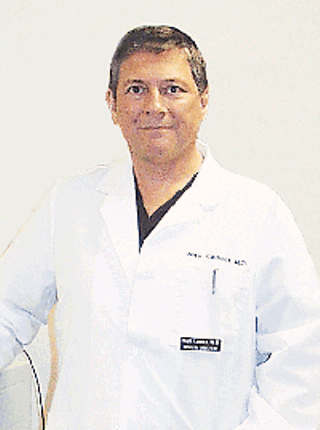So, tell me about toxins.
Many toxins go unrecognized by contemporary conventional medicine. The doctors know they're there, but they don't do anything to treat or diagnose them. The presence of toxic metals is under-diagnosed, so they're under-treated. They're pandemic--metals like mercury, arsenic, lead, cadmium, cobalt, aluminum, uranium and several others. We have, as a population, accumulated huge amounts of these in our bodies. ... And we could all be dying because of toxic metals, but by definition, only those who have the top 3-4 percent of the levels are considered too high.
How do you know that lower levels of toxicity could be killing us?
We all know that they can help cause artery disease, heart disease and cancer, and there are suspicions that they may play a part in certain neurological and brain diseases, like Alzheimer's. They impair the immune system and attack the central nervous system. They're quite deadly.
OK.
We've all heard of a 19th-century novel in which someone is poisoned slowly by arsenic. Why they're not seeing (the dangers of toxic metals) in conventional medicine is they're not very familiar with the science behind ... toxic metals. Consider your body to be like a salad dressing, with oil and vinegar. Oil equals fat, which in large part includes your brain, which is made of phospholipids, which is mostly a form of fat. Certain spices reside in the oil layer, while others are in the vinegar, which in the analogy is the water-based layer. ... The problem is that toxic metals stay in the oil and fat parts of the body, but the excretion methods (all involve the) vinegar-water base. Toxic metals are hydrophobic--they like to stay in the fat. The body has a difficult time excreting these liquids.
If toxic metals are such a problem today, why are we living longer?
Other things were more lethal in the past, like bacteria and viruses. Things like antibiotics pushed the frontiers of longevity. The next frontiers are getting rid of substances that accumulate in our body that are killing us.
Why are toxic metals such a problem these days?
We don't have extensive data on the past. ... Agricultural products all contain arsenic, because it's in our groundwater; even organic products will be grown with arsenic. Coal fire has been a cause. (Toxic metals) contaminate the water table. ... Contamination enters the food chain, and it enters our bodies. These things are being cleaned up ... but they remain in the environment for decades and decades. But it's a simple matter to detect and treat them.
How so?
Most physicians would do a blood test or a 24-hour urine test. But that's coming from the vinegar part. But physicians who are trained know that one needs to purge metals out of the oil, the fat layer.
How do you purge them?
It's simple: You use one of several chelating agents. At the molecular level ... the toxic metal's ions bond to it, and together, they're water-soluble and can be excreted in the urine and through the intestine. ... You can then measure the output. You can infer that the people with high levels of toxic metals in their urine have a lot of toxic metals in their body. ... It's not exact, but it gives you a rough idea about the degree of contamination. Then we can treat it with various other chelating agents.
After metals are purged, do people feel different?
Some yes, some no. It you feel well, you'll still feel well when you're done. But others who are sick--like, if they have chronic fatigue syndrome--usually feel well or better after a course of treatment. But eliminating toxins is about improving future health. Think of that old arsenic-poisoning example again, with the wife slowly poisoning her husband. He gets sicker, because he can't excrete it. It accumulates over time.





